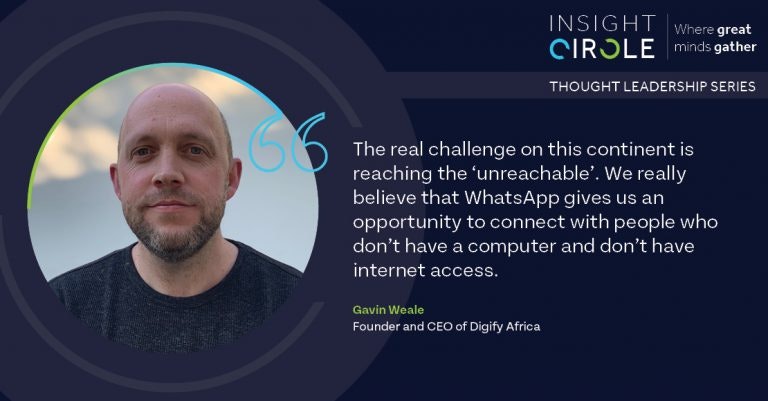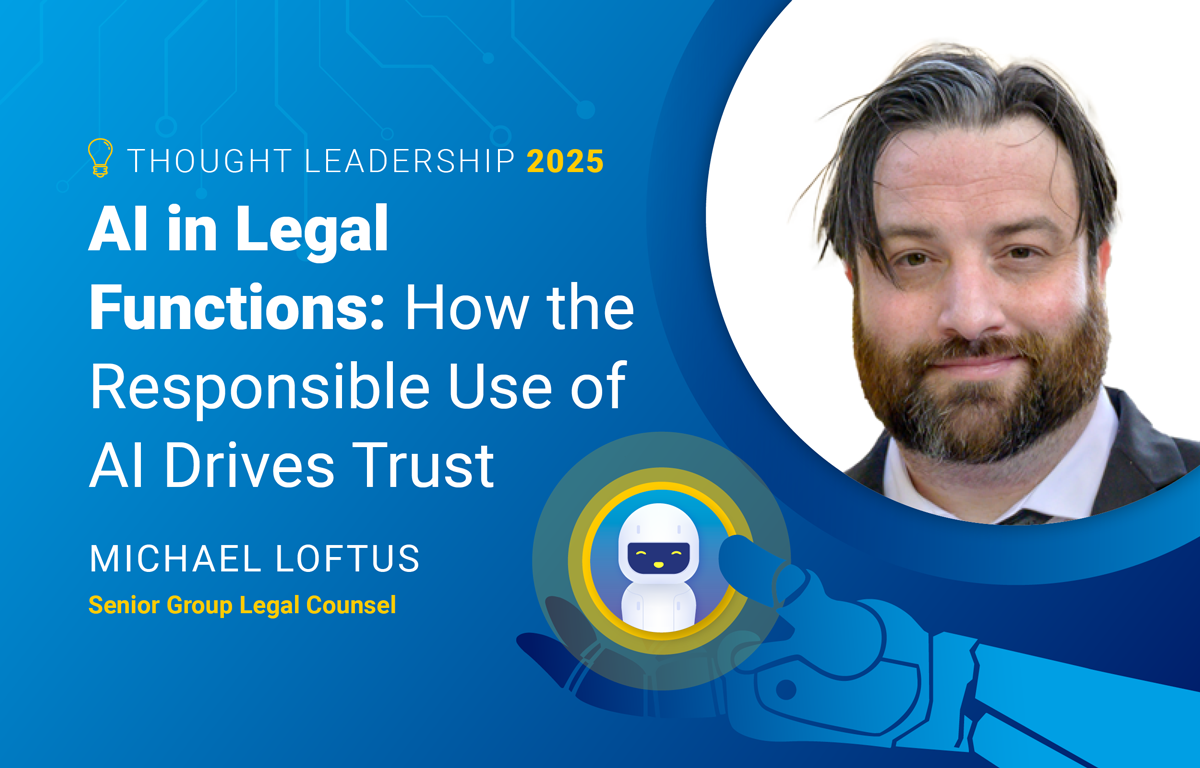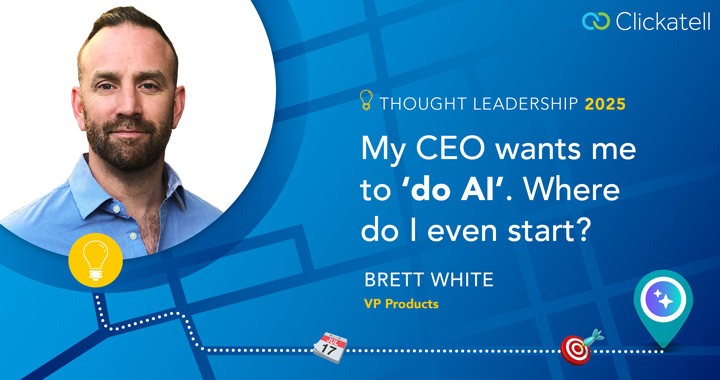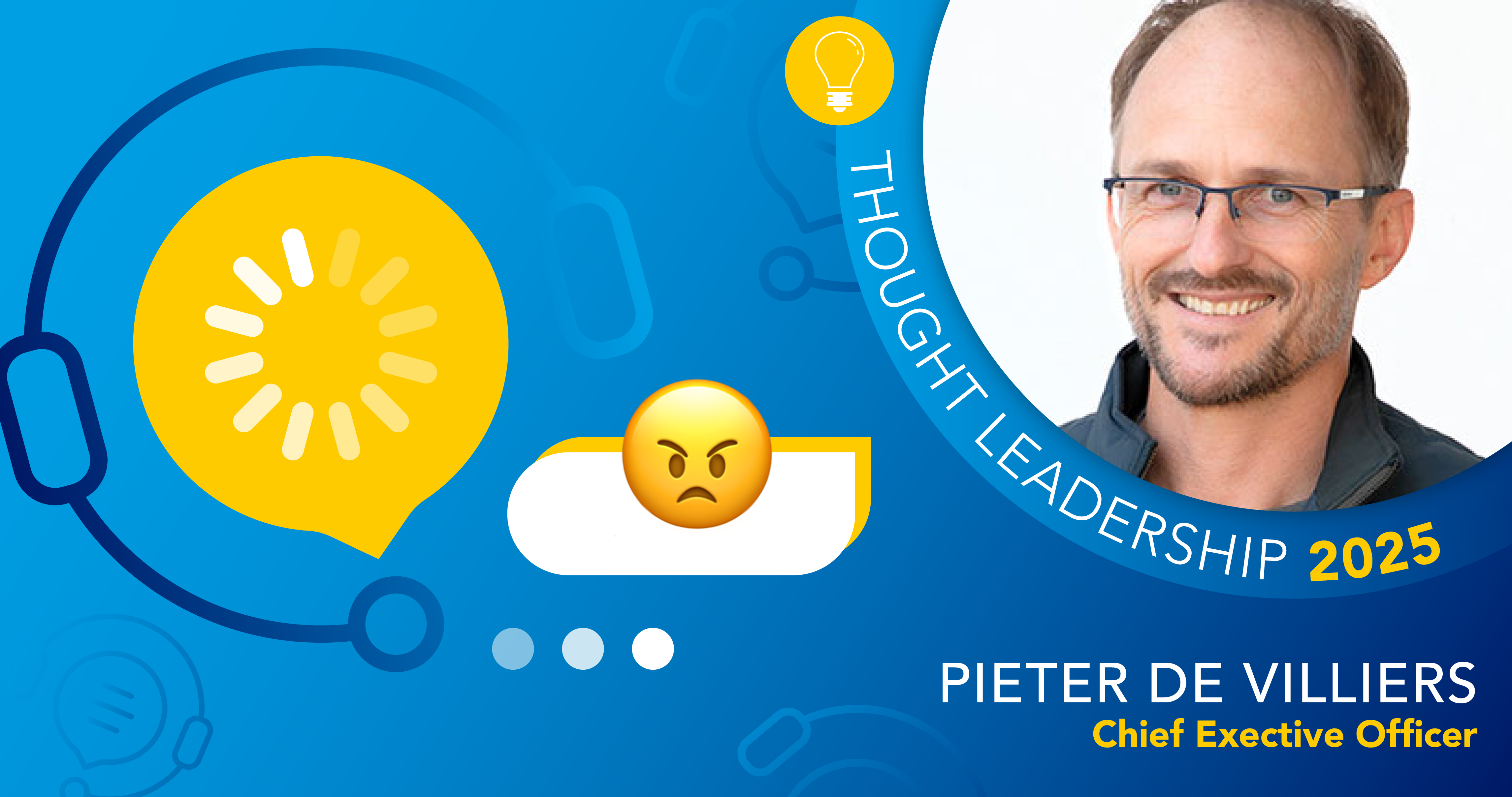
Like so many before him, Gavin Weale had only planned to stay in South Africa for a year when he arrived to take up a Shuttleworth Foundation Fellowship. But a decade on, the one-time music journalist now heads up one of the continent’s most impactful digital empowerment academies, Digify Africa.
Insight Circle spent a fascinating morning connecting with Gavin, exploring his views on how empowering young people with digital skills can help transform African businesses, as well as hearing how Africa can become the next big outsourcing destination.
Gavin was involved with the well-known youth publication, Live magazine, in London for some years before he came to South Africa in 2010, where he connected with the Shuttleworth Foundation. With the backing of the Foundation as well as a Fellowship, he later launched Live magazine in South Africa.
Gavin explains that he soon realised that the problem he was most passionate about solving was creating employment opportunities. And so Digify Africa (previously known as Livity Africa), was born.
The Digify Africa academy offers free and low cost academy programmes for jobseekers and entrepreneurs across Africa, both online and offline. It also provides digital marketing and social media content and campaigns in collaboration with its trainees and alumni, enabling participants to acquire the skills they need in order to build a career in digital marketing.
The organization has recently captured headlines announcing a WhatsApp learning platform, Naledi, in partnership with Facebook, and Techys as well as youth from non-profit Geekulcha. Naledi was first piloted with a group of UNISA postgraduate students in 2020 and is now available to young people across Africa.
“Digify Africa is focused on equipping a generation of young people with critical digital skills that allow them to build their confidence in the future of work. We are particularly interested in the world of digital marketing, which are skills that you can learn relatively quickly, and which have a lower barrier to entry than some of the more advanced kinds of tech skills, such as software development,” he explains.
Using chat to bridge the digital divide
A recurring challenge in developing countries is accessibility. For Gavin and his team, getting the information to their learners is one of their bigger hurdles. In this regard chat is once again proving itself a hero.
“We have been looking into chat and chatbot technologies for some years now. We are always fighting against the digital divide. The real challenge on this continent is reaching the ‘unreachable’. We really believe that WhatsApp gives us an opportunity to connect with people who don't have a computer and don't have internet access. Apps and websites are still out of reach for many, but around 24 million people in South Africa already have WhatsApp on their phones and don’t require additional data to download it or access a website,” he says.
Gavin is quick to point out that for those who do have access to computers or tablets, these will be the preferable way to study, but he says that even for them, there have been excellent online learning use cases for WhatsApp, including tutorials and interactive Q & As.
Africa has a unique outsourcing opportunity
We asked Gavin which technologies he thought would transform the work he was doing with Digify Africa. Unsurprisingly he said he and his team were paying close attention to chat and the various advances being made in the space. He also points to AI which he says can be burdened by misunderstanding.
“AI is a really interesting one for us because our focus is on creating jobs, but if you read some reports they warn that AI may kill off jobs. But others say the opposite, with the World Economic Forum last year producing a report saying AI would actually be a net creator of jobs. With AI shifting our front-end tools we may need fewer software engineers and more curators of those tools created by AI - and you won’t necessarily need four years of coding to do that,” he explains, hastening to add the caveat that software engineering would still have an important place in our world of work for some time yet.
With his mind firmly on the future of his academy, Gavin says he and his team are spending a good deal of time following technologies like natural language processing and how it could aid learning. He is also interested in keyword-based research, which he says could help track how people are comprehending and engaging with their learning, based on how they are talking and writing about that information. This is however, he says, still an ambition due to the complications posed by the many dialects of African, and particularly, South African learners.
Gavin’s vision of the future underscores the mission of his organization. He believes that with the right support and training, young people in Africa could leapfrog their opportunities, creating small businesses that can compete globally.
“Certain digital services can easily be outsourced. For instance, South Africa, Kenya and Nigeria are all English speaking countries and there is a huge opportunity for those countries to become centres of excellence. We have been thinking in terms of niched skills like community management and social moderation. Just like we saw South Africa capture the call centre industry, there is no reason why, with the right support, we couldn’t do the same for specialist social skills. We are also confident that with the right technology behind us we can deliver the skills needed to support this, at scale,” he says confidently.
Gavin’s passion, tempered by his strong pragmatic approach, is sure to guide Digify Africa towards his goal and Insight Circle is looking forward to checking in with this social entrepreneur to discover how he has tapped into the opportunities of tech to help deliver a brighter future.
Step into the future of business messaging.
SMS and two-way channels, automation, call center integration, payments - do it all with Clickatell's Chat Commerce platform.








